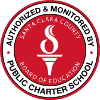Developing Tomorrow’s Talent
People today generally agree that the goal of education is to convey knowledge. But if all the world’s knowledge is instantaneously available online via a mobile device, how does that affect what we need to teach in schools and through other educational channels?
Education is becoming less about acquiring knowledge and more about how to analyze, evaluate, validate and use the unlimited information that is available to us. We will need to teach more critical thinking, collaboration and social skills. Perhaps we will not teach answers, but how to ask the right questions.
Technology’s effect on education over the past decade has been transformative. As the Internet of Everything gains traction, that effect will continue to expand. The networked connections among people, processes, data and things will change not only how and where education is delivered, but will also prompt educators to reconsider what students need to learn, and why. As technology and networking become increasingly critical to businesses of all types across all industries, there is growing demand for individuals with specialized technology skills.
As an example, the top 10 jobs in 2010 did not exist in 2004 (e.g.: Social Media/Online Manager, Sustainability Manager, SEO Optimization Specialist, etc.). These changes mean that students are currently learning information and processes that may well be outdated by the time they enter the workforce. How can the education and private sectors prepare students for jobs that don’t yet exist?
Looking into innovative methods for advancing STEAM (science, technology, engineering, art, and math) education, Los Altos’ Bullis Charter School came to my attention. Bullis is helping students build an interest and comfort level with technology, innovation, entrepreneurship and collaboration through personalized education and focused learning goals for every K-8 student. The curriculum is centered on building the critical skills of problem solving, creativity and critical thinking.
Teachers at Bullis employ project-based learning assignments that marry instruction with hands-on learning and individual, as well as team, efforts to create an immersive and whole-brain experience that will serve these students well as they face an uncertain, ever-changing technology landscape. This early and steady exposure to STEAM subjects encourages more students to consider careers in these critical fields.
Bullis Charter School’s individualized, innovative approach to learning represents one way in which current educational standards must be transformed in order to meet the challenges of filling technology jobs. Below is a video of my conversations with Bullis’ principal Wanny Hersey, as well as teachers and students — watch and let us know your thoughts on transforming educational content and methodologies.

